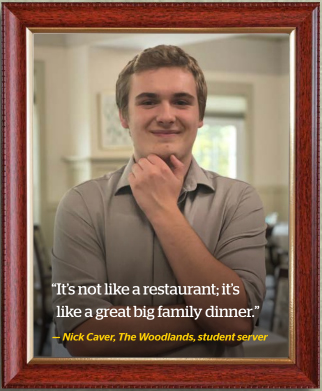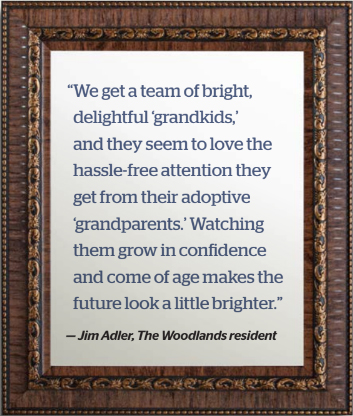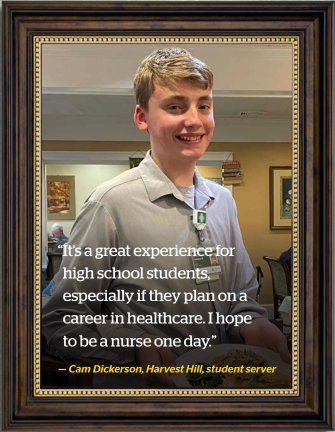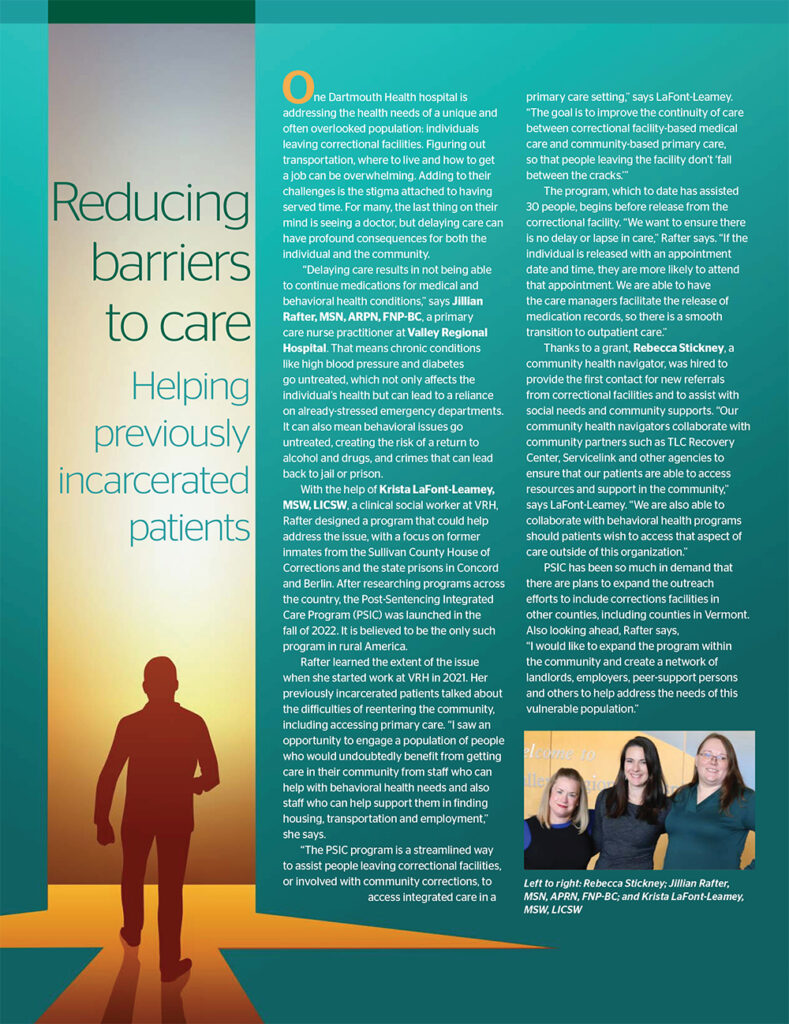We’re excited that Dartmouth Health’s employee magazine, Connections, recently featured an article about the unique sense of family fostered at our APD Lifecare communities, Harvest Hill and The Woodlands. It highlights the special relationships that form between our residents and the high school students who work in the dining rooms, and how these intergenerational connections positively impact both young and old. Read on to learn more about how these meaningful bonds enrich lives and even inspire career paths in healthcare.
The Feeling of Family
It’s something we don’t see enough in our society-opportunities for connection between old and young. But that’s happening every day at Alice Peck Day Memorial Hospital’s two Lifecare facilities, Harvest Hill, an assisted living community, and The Woodlands, an independent living community.
When residents gather for dinner, it’s often served by high school students employed by the facilities. Over time, relationships build, says Nikki Fortier, executive director of APD Lifecare. “The students become surrogate grandchildren for residents, who may not see their families very often.”
These often joyful relationships enhance the well-being of both the residents and the students. Research shows that intergenerational relationships can improve mental and physical health for older people.
The relationship between the residents and students goes beyond dinnertime. “At prom time, students usually make a stop at The Woodlands or Harvest Hill in their prom finery, so residents can see them all dressed up,” Fortier says. “The residents are also thrilled when prior students return to visit.”
Fortier says that the experience of students, who number from 50 to 60 at any one time, can generate an interest in healthcare, perhaps even geriatric care: “This absolutely happens sometimes. Their relationship with older people demystifies elder care.”
And sometimes that healthcare career takes place at Harvest Hill and The Woodlands. “We have several examples of full-time employees in our nursing department—resident assistants, LNAs, an RN—who started out in the dining room,” Fortier says. “The feeling of family that is established in the dining room is a motivator for some to pursue a caregiving career path.”
Read Connections Magazine →




